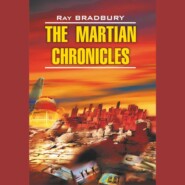По всем вопросам обращайтесь на: info@litportal.ru
(©) 2003-2024.
✖
Driving Blind
Автор
Год написания книги
2018
Настройки чтения
Размер шрифта
Высота строк
Поля
“Sorry. I really didn’t mean—”
“Don’t get up, Henry. You’re here now.”
“But under the circumstances—”
“It’s all right. I’m under control. And even given the circumstances, you were always my best friend and it’s nice, in a way, to see you again.”
“Strange. I wasn’t shocked to see you.”
“There’s a difference, Henry. I mean, well—”
“You’re alive, and I’m not, eh? Yes, I can see that. Hello, I must be going.”
“What?”
“Groucho Marx sang a song with that title.”
“Oh, yeah. Sure.”
“Marvelous man. Funny. Is he still around? Did he die, too?”
“I’m afraid so.”
“Don’t be afraid. I’m not. Don’t know why. Just now.” Henry Grossbock sat up straight. “To business.”
“What business?”
“Told you at the front door. Important. Must tell. I am very upset.”
“So was I, but this liquor does wonders. Okay, Henry, shoot.”
“The thing is—” Henry Grossbock said, finishing his second drink quickly, “my wife is neglecting me.”
“But Henry, it’s perfectly natural—”
“Let me finish. She used to come visit constantly. Brought me flowers, put a book nearby once, cried a lot. Every day. Then every other day. Now, never. How do you explain that? Refill, please.”
Steve Ralphs tipped the bottle.
“Henry, four years is a long time—”
“You can say that again. How about Eternity, there’s a real vaudeville show.”
“You didn’t really expect to be entertained, did you?”
“Why not? Evelyn always spoiled me. She changed dresses two or three times a day because she knew I loved it. Haunted bookshops, brought me the latest, read me the oldest, picked my ties, shined my shoes, her women’s-lib friends joshed her for that. Spoiled. Yes, I expected to have someone fill the time for me.”
“That’s not how it works, Henry.”
Henry Grossbock thought and nodded, solemnly, and sipped his whiskey. “Yes, I guess you’re right. But let me name the biggest problem.”
“What’s that?”
“She’s stopped crying. She used to cry every night, every day at breakfast, twice in the afternoon, just before supper. Then, lights out, crying.”
“She missed you, Henry.”
“And now she doesn’t?”
“Time heals all wounds, they say.”
“I don’t want this wound healed. I liked things just the way they were. A good cry at dawn, a half decent cry before tea, a final one at midnight. But it’s over. Now I don’t feel wanted or needed.”
“Think about it the way you had to think about your honeymoon with Evelyn. It had to end sometime.”
“Not entirely. There were stray bits of it for the rest of forty years.”
“Yes, but you do see the resemblance?”
“Honeymoon ended. Life over. I certainly don’t much care for the residue.” A thought struck Henry Grossbock. He set his glass down, sharply. “Is there someone else?”
“Someone …”
“Else! Has she taken up with—?”
“And what if she has?”
“How dare she!”
“Four years, Henry, four years. And no, she hasn’t taken up with anyone. She’ll remain a widow for the rest of her life.”
“That’s more like it. I’m glad I came to see you first. Set me straight. So she’s still single and—hold on. How come no more tears at midnight, crying at breakfast?”
“You didn’t really expect that, did you?”
“But damn, I miss it. A man’s got to have something!”
“Don’t you have any friends over at the—” Steve Ralphs stopped, flushed, refilled his glass, refilled Henry’s.
“You were going to say graveyard. Bad lot, those. Layabouts. No conversation.”
“You were always a great talker, Henry.”
“Yes, yes, that’s so, wasn’t I? Aren’t I? And you were my best listener.”
“Talk some more, Henry. Get it all out.”
“I think I’ve hit the high points, the important stuff. She’s stopped coming by. That’s bad. She’s stopped crying. That’s the very worst. The lubricant that makes—what I have become—worth the long while. I wonder if I showed up, would she cry again?”

















